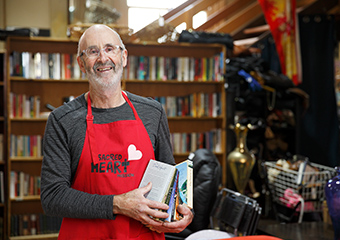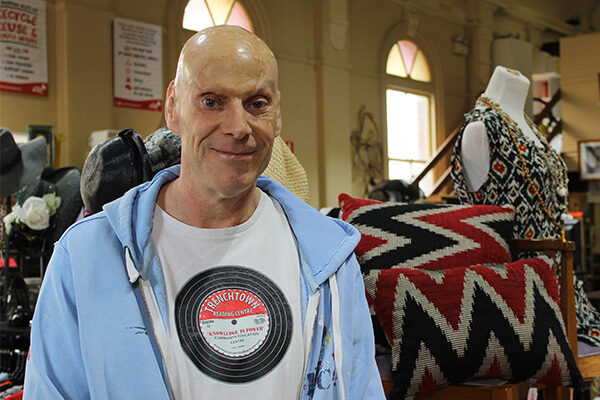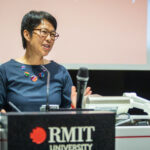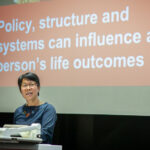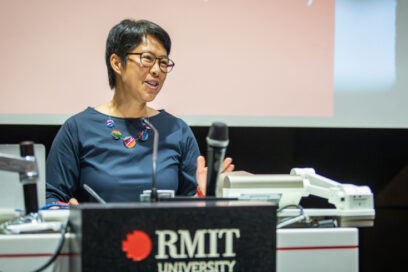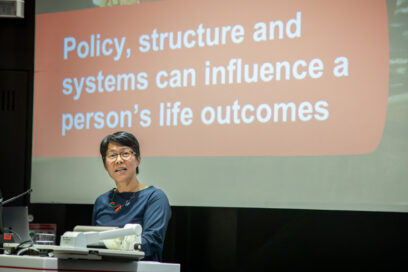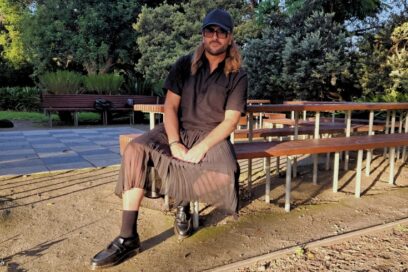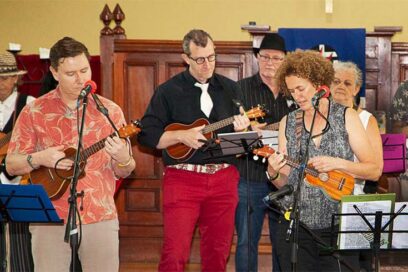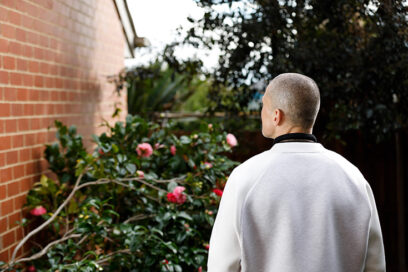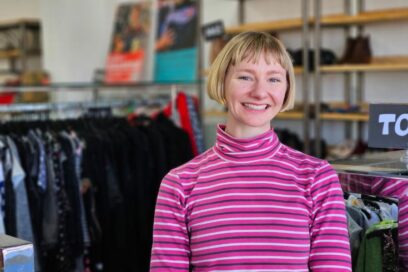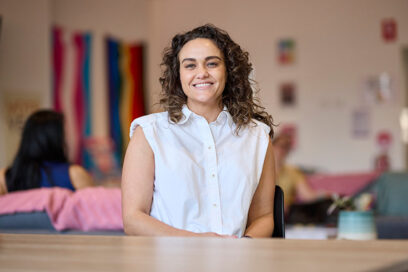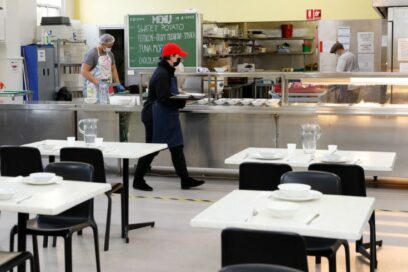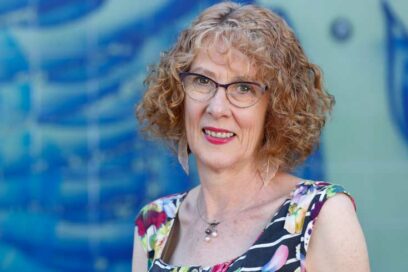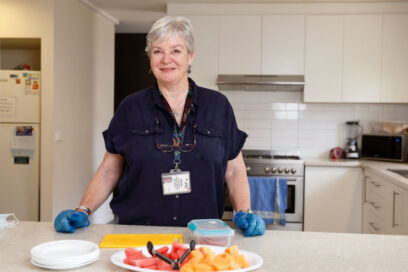“Don’t worry, mate, I’ve seen much worse. You’ll be alright, we’ll put you back together.”
Even though Dave Holland was blind at this point – one eye covered in blood, the other pulled from its socket – he remembers a figure hovering over his injured body, reassuring him he would be okay.
Dave is one of our op shop volunteers, and has been for 14 years. His stint started not long after he endured a horrific workplace accident, where his skull was maimed by an auger.
“I was in and out of the hospital trauma ward for 12 months. The staff there provided me with extraordinary treatment,” Dave says.
At the time of the accident, Dave was told he might not have long to live. Faced with his own mortality, he felt a powerful urge to give back.
It was only five months on from his accident when he started volunteering at the Mission’s Dining Hall, then moved across to our op shops. A few days a week, he would summon his energy, push past the immense pain, and commit his time to serving customers in our Windsor op shop.
Fortunately for Dave, he had not acquired any kind of brain injury from the accident, but his entire life had been turned upside. He was living with immense physical and emotional trauma, separating from his partner, and trying to understand where he fit.
“At that time, the only people I spoke to were the psychiatric staff at the hospital and the staff and volunteers at Sacred Heart Mission,” Dave says.
“If I hadn’t had them, I could have gone down a dark path.”
A few years ago, Dave was asked to appear in a newspaper. The journalist gathered everyone who had been a part of his story on that fateful day, including the figure – a man named Barry – who had stood above him as he lay, dying.
Dave remembers pacing up and down, trying to move the nerves through his system, until the journalist came to usher him through. He spotted the figure from across the room – it was Barry.
Dave thanked Barry for the words he had spoken; the hope had provided: ‘Don’t worry, mate, I’ve seen much worse. You’ll be alright, we’ll put you back together.’ Barry looked at him for a moment in disbelief and finally responded, ‘I have thought that sentence so many times, but I’ve never said it aloud.’
“When you die – and I had been pronounced dead at the time – you acquire this new level of knowledge, and you become incredibly aware of others and how they are feeling,” Dave explains.
